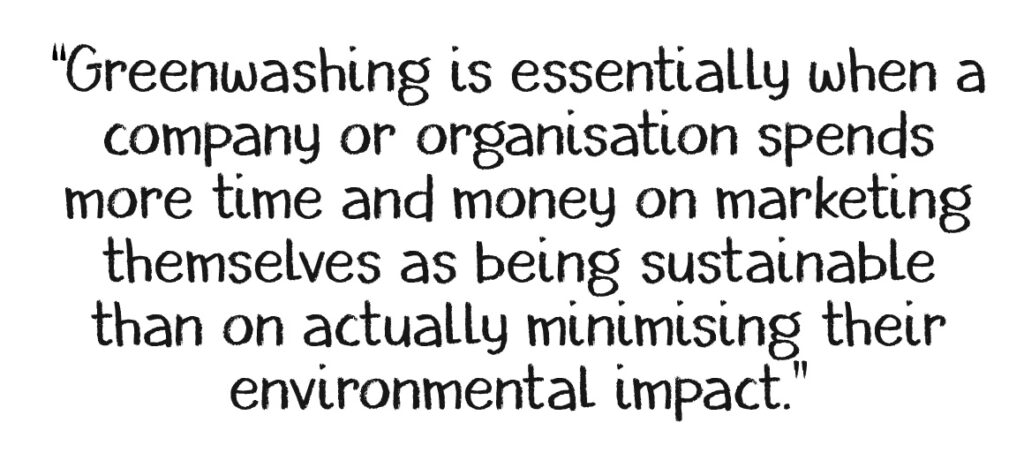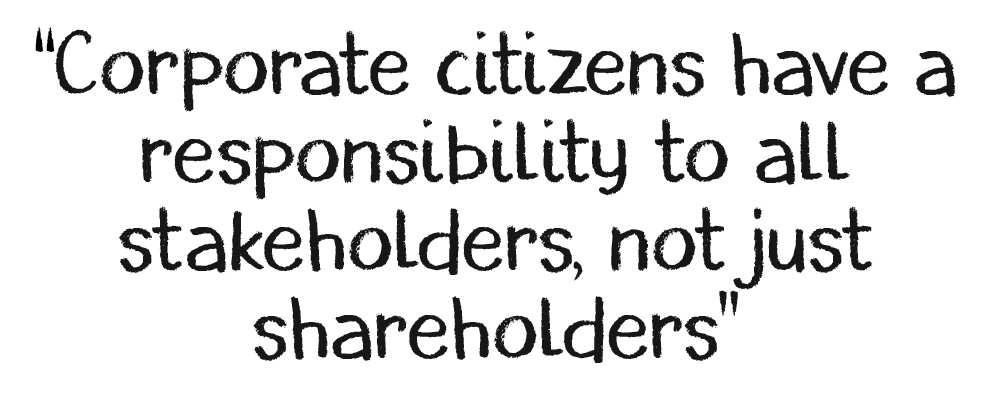What is the true cost of doing business?
Climate change has become a climate crisis, inequality, poverty, Brexit, a cost of living crisis, a pandemic, war in Europe…
With so many challenges to respond to, business as usual is more and more unusual.
What if the price of doing business didn’t cost the Earth?
This is part of the philosophy behind the ‘Triple Bottom Line‘.
The term was first coined by British sustainability consultant John Elkington, in 1994.
I view it as the makings of a recognition that everything and everyone, cannot, and should not, be commodified and measured purely in financial terms.
I’ve always thought that the point of ‘a business’ is not just to make money, but to ‘serve a purpose’. To provide products and/or services that offer solutions, and that go further than a mere financial exchange, regardless of the costs to people and planet.
Arguably, many of the challenges we face in the world today exist because businesses have functioned, and been actively supported by policymakers, to do only one thing: to generate money – to make ‘a profit’.
This is an outdated economic approach that is literally costing the Earth.
What is Triple Bottom Line?
The true cost of doing business comprises of 3 Ps:
- People
- Planet
- Profit
(Source: diligent.com)
However, why focus on profit when what we should really be focusing on is prosperity?
Profit vs Prosperity – Changing the Triple Bottom Line
It is inherently unsustainable, because Profit is fundamentally Excess. Profit is about greed and self interest – the most destructive things for people and planet.
I argue that it is not possible to benefit People and Planet if you focus on making Profit. Instead, focus on Prosperity to be financially and ethically sustainable.
I’m not saying ‘money is bad’ – like any tool it can be used to make things or destroy things. The point of the Triple Bottom Line is to create something positive with your monetary tools. Instead of feeding the endless cycle of greed, excess and destruction.
Prosperity is about having enough, for everyone with a stake in your business.
The opposite of austerity; prosperity uses financial tools to invest in sustainable outcomes.
As long as ‘profit’ is the third P, businesses will focus on it. It’s merely doing business as usual and treating the other 2 Ps as marketing outcomes to greenwash the ethically and environmentally dubious elements of the business.

For real change to happen in the way we conduct business in a changing world, let’s stop talking about Profit and shift our mindset towards Prosperity instead.

The Benefits of the Triple Bottom Line
This isn’t just about ‘doing the right thing’ (which of course, is important). There are tangible, genuine, sensible, economic, and business reasons for considering more than profit.
Risk Management and Mitigation
Business is inherently risky, but looking beyond profit identifies risks before they cost you money!
Attracting and Retaining Talent
Every employer knows that it is far more costly, both in reputation and finically, to be constantly losing and recruiting staff. It’s cheaper to keep the people you have than constantly replace them.
Humans are not light bulbs to plug in, use up, then discard and replace!
Good people want to work for a good business.
Employees have always worked and been loyal to businesses for more than just money. We’re humans, not fruit machines! We need more than cash to be fulfilled.
The employees of the future – Gen Zs – make choices based on personal ethics.
Deloitte’s Global 2021 Millennial and Gen Z survey found that 49% of Gen Z respondents had “made choices over the type of work they are prepared to do or organisations they’d work for based on personal ethics”.
The Triple Bottom Line Explained: Meaning, Importance and Future (diligent.com)
Reputation
Consumers are increasingly concerned about the impact of their buying choices. They vote with their wallets and actively choose to buy from the more ethical business. It’s why greenwashing has so much traction. Green business is good business. And it’s why I’m going for a year without supermarkets.
Longevity and Sustainability
Instead of being a flash-in-the-pan business, actively doing business in an ecologically sustainable way is financially sustainable too. You are future proofing your business by pursuing the Triple Bottom Line.
Reducing Costs
It’s an inconvenient fact that oil and gas will run out – in the lifetime of the next generation!
It’s an inconvenient fact that the Earth has finite resources. We can’t keep mining raw materials and creating mountains of toxic waste forever. The Earth already cannot sustain our levels of consumption, we are living on borrowed time.
It’s the basic economics of supply and demand. If there is dwindling supply and increasing demand, costs rise. We see it starkly in the current cost of living crisis. It will only get worse if we continue to do nothing and behave like the problem will just go away.
Legal Compliance
There will only be more social and environmental legislation over time.
40 years ago CFCs (Chlorofluorocarbon) were widely used and the ban in 1987 averted a climate catastrophe.
The UK government have introduced a Plastic Packaging Tax of £200 per tonne from April 2022. (Hooray, finally something decent. Although it’s still pretty measly and doesn’t go far enough!).
These are just two headline grabbing examples. Why wait for the law to change before choosing to act responsibly?